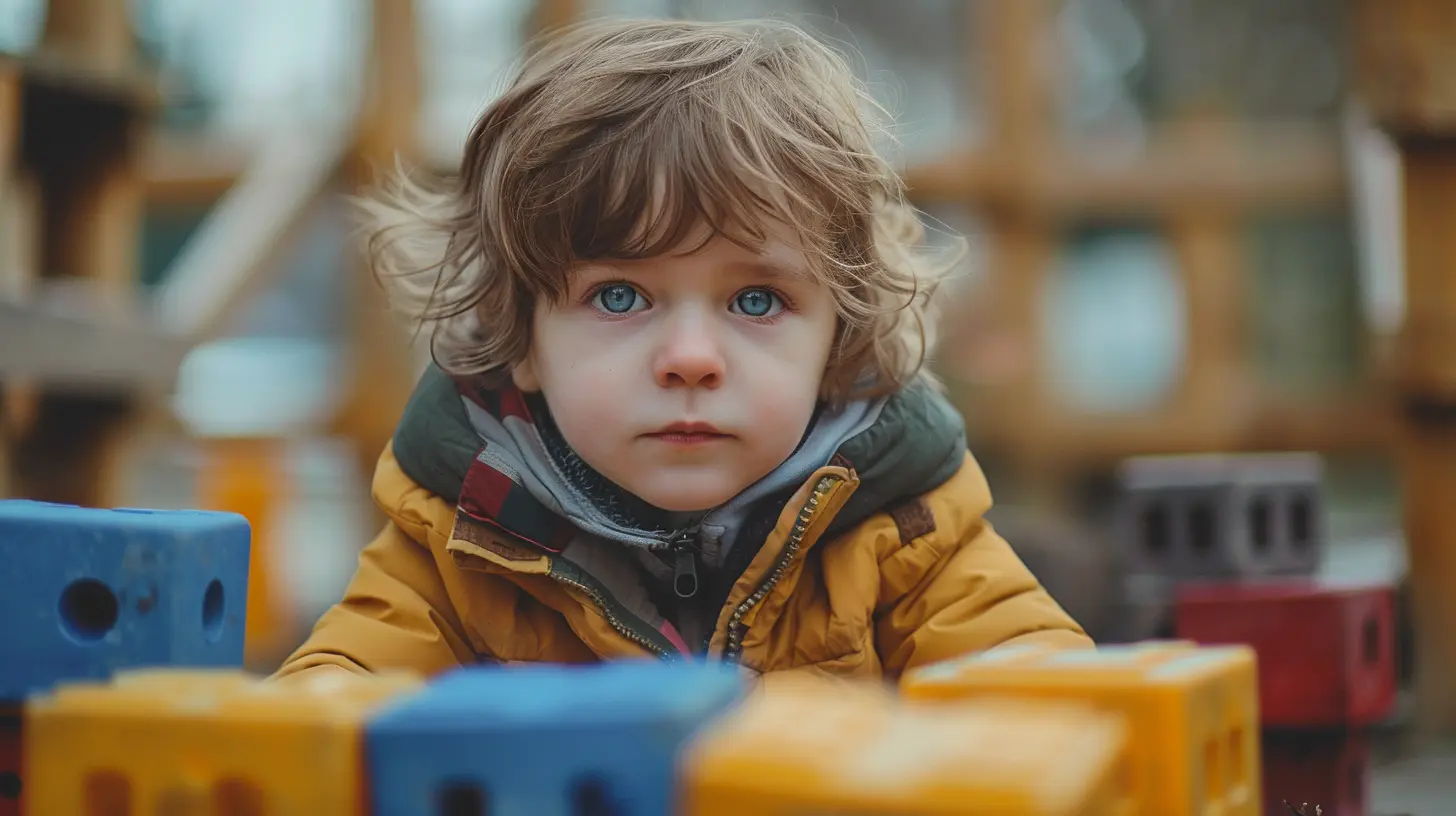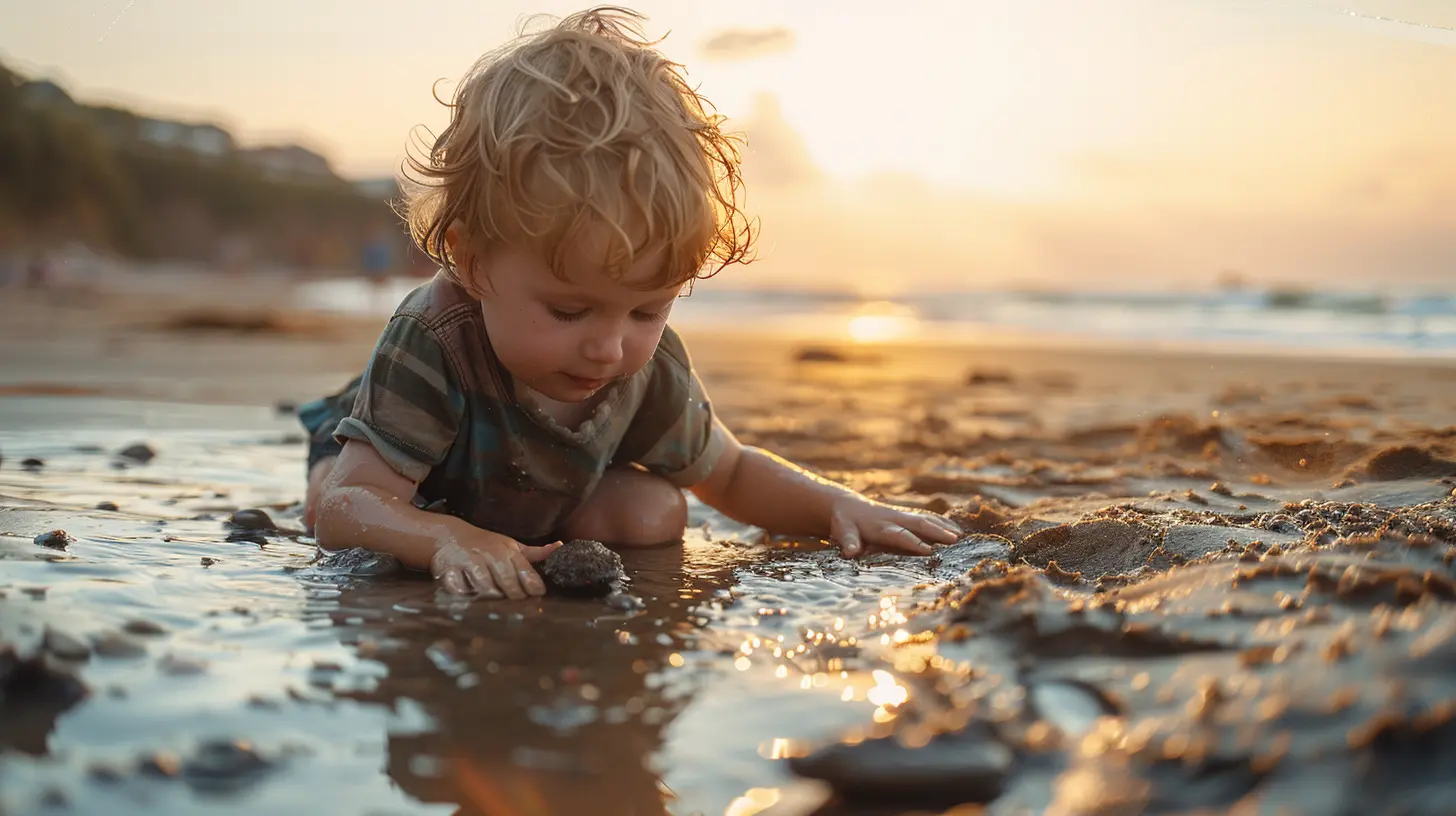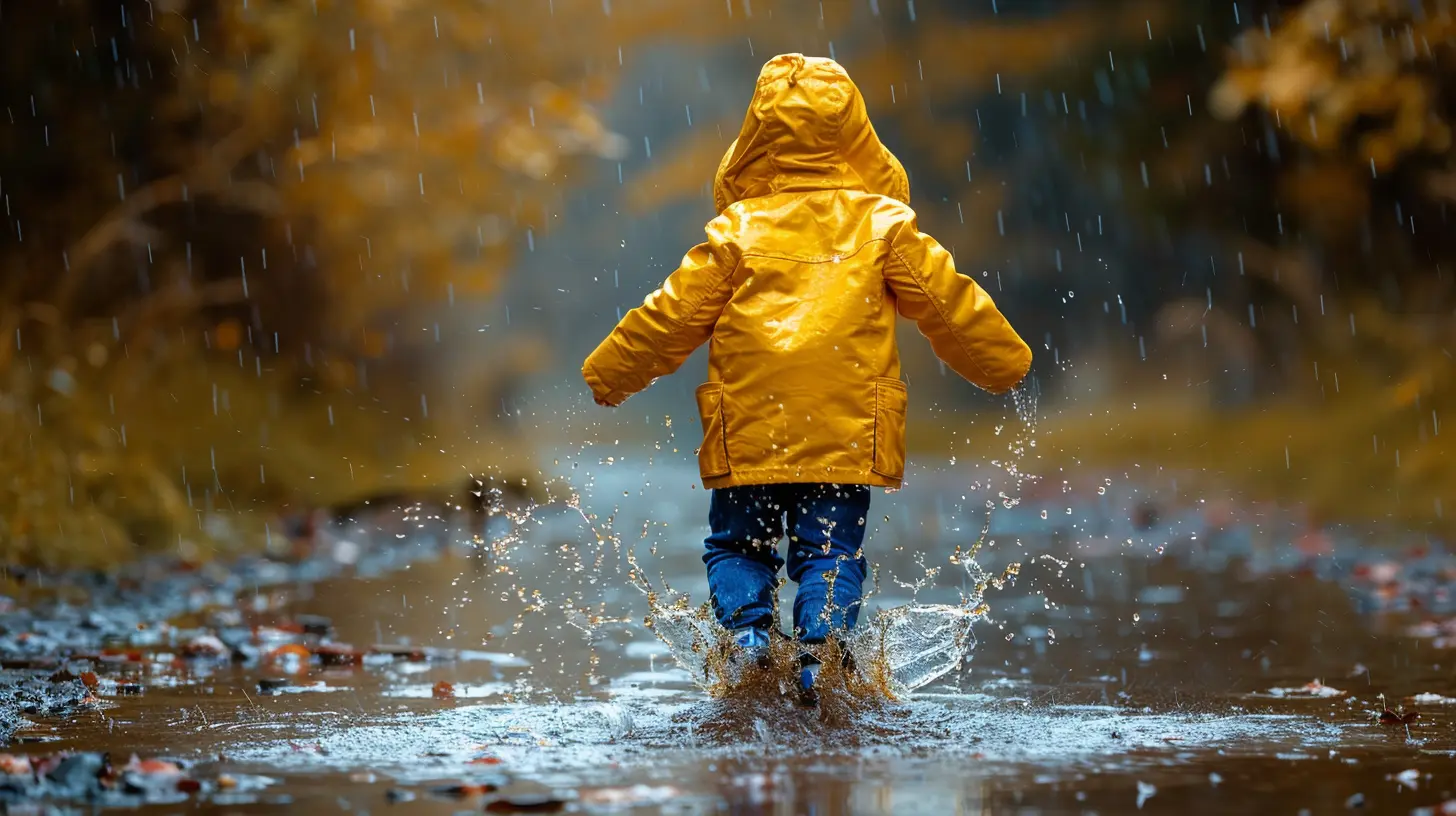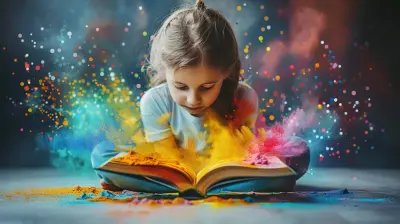The Importance of Play in Toddler Development
9 January 2025
Is there anything more heartwarming than watching your toddler immersed in play, laughing uncontrollably as they stack blocks or zoom around with their toy cars? While it may seem like just fun and games, there's a lot more happening beneath the surface. Play is essential for a toddler's growth and development—it's their way of understanding the world and themselves.
In this post, we’ll dive deep into why play is so important for toddlers and how it impacts their cognitive, physical, emotional, and social development. Whether you're a first-time parent or a seasoned pro, understanding the power of play will help you foster a more nurturing and stimulating environment for your little one.

What Exactly Is Play?
Before we jump into the nitty-gritty, let’s clarify what we mean by "play." At its core, play is any activity that is enjoyable and voluntary. It can be structured, like a game of hide-and-seek, or unstructured, when your toddler just explores their environment on their own.But here’s the magical part—while toddlers are busy playing, they’re also learning. Every interaction, whether it’s with a toy, another child, or even a stick found in the garden, provides a learning opportunity. Play is toddlers' natural mode of discovery. Through it, they acquire various skills that lay the foundation for later milestones.

Types of Play and Their Benefits
Not all play is the same. Different types of play offer distinct developmental advantages. Here are some key forms of play and why they matter:1. Physical Play
Also known as "rough-and-tumble" play, this kind of activity includes running, jumping, climbing, and anything that gets those muscles pumping. Physical play is crucial for building motor skills, coordination, and muscle development.Ever notice how your toddler seems to never run out of energy? That’s their body craving movement! When they engage in physical play, they're strengthening their body and learning spatial awareness. Running around the park or climbing on playground equipment might seem chaotic, but it’s all part of the plan to build strong, confident bodies.
2. Pretend Play
Pretend or "imaginative" play is when toddlers create elaborate scenarios, like pretending to be a superhero, taking care of a baby doll, or hosting a tea party. This kind of play plays a huge role in cognitive and emotional development.By putting themselves in different roles, toddlers exercise their ability to understand and process emotions—both their own and the emotions of others. This boosts their empathy and emotional intelligence. Have you ever caught your little one talking to their stuffed animals as if they’re real? That's their brain practicing complex social interactions!
3. Constructive Play
Constructive play is all about building, creating, and problem-solving. Think of activities like stacking blocks, puzzles, or drawing with crayons. This kind of play fosters creativity and fine motor skills while teaching toddlers how to focus on a task and see it to completion.When your toddler spends time figuring out how to fit pieces of a puzzle together or build a tower without it toppling over, they're practicing critical thinking and improving hand-eye coordination—skills that will come in handy in the classroom and beyond.
4. Social Play
Social play involves interaction with other children (or adults). Whether it's sharing toys, playing a cooperative game, or engaging in parallel play—where kids play side-by-side but not directly with each other—social play is key for developing communication skills and understanding social norms.Through social play, toddlers start learning about turn-taking, negotiation, and conflict resolution. Sure, there may be a few tantrums when someone doesn’t get the toy they want, but these small challenges help teach patience and empathy.
5. Sensory Play
Sensory play involves activities that stimulate the senses—think sandpits, playdough, or water tables. It’s a fantastic way for toddlers to explore different textures, smells, colors, and sounds, which in turn strengthens their cognitive abilities.Sensory play helps toddlers understand the world around them through direct sensory input. And it’s not just fun; it also promotes self-regulation, as it encourages them to focus on specific tactile or auditory experiences.

How Play Contributes to Toddler Development
Now that we’ve covered the types of play, let’s look at how each aspect of development is nurtured through these fun interactions.1. Cognitive Development
During play, toddlers start to grasp fundamental concepts like cause and effect, problem-solving, and decision-making. When building a block tower and knocking it over, they are learning about physics without even realizing it. Activities like puzzles, sorting objects by color, or playing memory games stimulate brain connections and enhance intellectual abilities.Pretend play, for instance, often requires toddlers to remember a storyline and act out specific roles, which strengthens memory and cognitive flexibility. Essentially, every game they create in their minds is a form of problem-solving.
2. Physical Development
From hopping on one foot to balancing on a beam, play drastically improves physical strength and gross motor skills. Toddlers develop coordination and balance through everyday activities like running, jumping, and climbing.Similarly, when toddlers engage in fine motor play, such as manipulating small objects or coloring within lines, they strengthen their hand muscles, a precursor for writing skills. Play is the best "workout" for growing bodies because it combines fun with fitness!
3. Emotional Development
Through play, toddlers learn to express and manage emotions. Ever seen your child comfort a crying toy baby doll or pretend to have a conversation with their stuffed animals? They're learning to process emotions, which helps them develop emotional intelligence.Also, play offers a safe space for toddlers to work through anxiety or frustration. For example, if they're scared of the dark, they might act out a story about a brave knight who conquers their fears. It gives them the chance to gain control over emotions in a low-pressure environment.
4. Social Development
As toddlers play with others, they learn important social concepts such as sharing, cooperating, and taking turns. These skills are transferable to real-world settings, preparing them for preschool and kindergarten, where interacting with peers becomes a daily occurrence.Joint play scenarios aid in building communication skills. Through group play (even if it's just parallel play), toddlers begin to understand the nuances of social dynamics. Whether it's negotiating over who gets to be the "teacher" in their imaginary classroom or learning how to deal with disappointment, play teaches essential communication and emotional regulation skills.
5. Language Development
It might surprise you, but play has a direct link to language development too. When toddlers engage in imaginative play, they naturally use words to describe scenarios and characters. This helps expand vocabulary and improves sentence structure.Engaging in simple dialogue with adults or other children, even during pretend play, helps toddlers grasp the basics of conversational skills. They learn how to initiate, maintain, and end conversations, which is all part of natural language learning.

How Can Parents Encourage Play?
By now, you’re probably eager to support your toddler’s playtime—but how can you foster the best environment for them to thrive? Here are a few tips:1. Provide a Safe Space
Make sure your child has a safe and engaging space to explore. Whether it's the living room floor or a corner of the backyard, ensure the area is free of hazards. A clutter-free and well-organized play space will allow them to focus more on creativity and less on distractions.2. Offer a Variety of Toys and Materials
You don’t need to fill your house with fancy gadgets or overwhelming toy collections. Simple toys, like blocks, puzzles, dolls, and art supplies, can offer hours of entertainment. Even household items, like empty boxes or wooden spoons, can turn into hours of imaginative play. The goal is to provide variety, so your toddler stays engaged and constantly learning.3. Get Involved (Sometimes)
Playing together is a wonderful way to bond. However, don’t feel the urge to always control the play. Allow your toddler to take the lead and make up their own games. Your role is to support, not direct.4. Encourage Outdoor Play
Nature provides endless opportunities for play. Whether it’s digging in the dirt or collecting leaves, outdoor spaces offer rich sensory experiences. Besides, the fresh air and open spaces work wonders for your child’s physical health and overall well-being.5. Play Every Day
Finally, make play a daily priority. Even if it's just 15 minutes of focused play together, it adds up! Don’t be afraid to play along. When you engage in your toddler’s playful world, you’re not just building memories—you’re actively contributing to their development.Final Thoughts
At the end of the day, play is not just a pastime for toddlers—it’s a fundamental building block of their growth. Through play, toddlers develop cognitive, physical, emotional, and social skills that will benefit them throughout their lives.The best part? They don’t even realize they’re learning. So, the next time you see your toddler building a sandcastle or zooming around with a toy airplane, remember that they’re doing more than just having fun—they're becoming the best version of themselves.
all images in this post were generated using AI tools
Category:
Toddler MilestonesAuthor:

Karen Hurst
Discussion
rate this article
14 comments
Kayla McKinley
This article beautifully highlights the critical role of play in toddler development. Engaging in play not only nurtures creativity but also fosters essential social and cognitive skills. Thank you for sharing!
February 10, 2025 at 5:49 PM

Karen Hurst
Thank you for your thoughtful comment! I'm glad you found the article highlights the vital role of play in toddler development.
Hadley McGehee
Oh sure, because watching toddlers throw toys is obviously the key to unlocking the secrets of the universe. Who needs structured learning when you can just let them “play” their way to becoming future rocket scientists? Sounds foolproof!
January 31, 2025 at 3:38 AM

Karen Hurst
While structured learning is important, play fosters creativity and critical thinking, essential skills for future success. It's not just about toys; it's about exploration and discovery.
Selene McDonald
Great article! It's amazing how much playtime influences our little ones' growth. Embracing those messy moments and unstructured fun really lays the foundation for lifelong learning and connection!
January 28, 2025 at 4:18 PM

Karen Hurst
Thank you! I'm glad you enjoyed the article. Play truly is essential for growth and connection in our little ones!
Kai Love
Thank you for this insightful article! It's a wonderful reminder of how essential play is for our toddlers. Embracing their natural curiosity truly nurtures their growth and development.
January 26, 2025 at 4:29 AM

Karen Hurst
Thank you for your kind words! I'm glad you found the article helpful in highlighting the vital role of play in toddler development.
Leah McQuillen
Play nurtures joy and growth in every child.
January 21, 2025 at 4:07 PM

Karen Hurst
Absolutely! Play is essential for fostering joy and supporting holistic development in toddlers. It enhances their cognitive, social, and emotional skills.
Carter Lozano
Absolutely loved this! As a parent, I see firsthand how vital play is for my toddler’s growth. It’s amazing how a simple game can spark creativity and learning. Thanks for highlighting this important topic!
January 17, 2025 at 3:40 PM

Karen Hurst
Thank you so much for your feedback! I'm glad you found the article valuable and appreciate your insights as a parent. Play truly is essential for growth and creativity!
Adrian McVicar
This article beautifully highlights the vital role of play in toddler development. It's inspiring to see how play fosters creativity, problem-solving, and social skills in our little ones. Let’s embrace these moments of joy and exploration, knowing that every game and giggle contributes to their growth and happiness. Keep playing!
January 16, 2025 at 5:30 AM

Karen Hurst
Thank you for your thoughtful comment! I’m glad you found the article inspiring—play truly is essential for our toddlers' growth and happiness. Let's continue to celebrate these joyful moments!
Maddox Phillips
What a delightful read! Your insights into the significance of play in toddler development are spot on. It's heartwarming to see how such simple activities can foster creativity, social skills, and emotional growth. Thank you for sharing these valuable tips that every parent can incorporate into their child's daily routine!
January 15, 2025 at 5:56 PM

Karen Hurst
Thank you so much! I'm glad you found the insights valuable. Play truly is essential for growth and development in toddlers!
Gabriella McRae
Thank you for this insightful article! It beautifully highlights how play is essential for toddlers' development. I appreciate the practical tips and the emphasis on fostering creativity and social skills through play. It's a wonderful reminder for all parents to prioritize these joyful moments!
January 15, 2025 at 4:16 AM

Karen Hurst
Thank you so much for your kind words! I'm glad you found the article helpful in emphasizing the importance of play for toddlers. Happy parenting!
Emmett Chapman
Play is essential for toddler development, fostering creativity, problem-solving skills, and social interaction. It’s through play that children learn about the world, themselves, and how to connect with others.
January 14, 2025 at 6:02 AM

Karen Hurst
Absolutely! Play is a vital component of toddler development, enriching their creativity, problem-solving abilities, and social skills. It lays the foundation for their understanding of the world and relationships. Thank you for highlighting this crucial aspect!
Yvonne Miller
This article beautifully highlights how essential play is for our toddlers. It’s heartwarming to see how such simple moments of joy contribute to their growth and learning. Let’s cherish and encourage their playful spirits!
January 13, 2025 at 3:33 AM

Karen Hurst
Thank you for your thoughtful comment! I completely agree—play is vital for toddlers' growth and development, and every joyful moment counts!
Zephyra Forbes
Absolutely loved this article! It’s amazing how playtime shapes our little ones' development. Whether it's building forts or playing pretend, those moments foster creativity and critical skills. Let's cherish the giggles and mess—it's all part of the beautiful journey!
January 12, 2025 at 4:48 PM

Karen Hurst
Thank you! I'm glad you enjoyed the article. Play truly is a vital part of childhood development, and those moments of joy are priceless!
Candace Barron
Ah, playtime: where my toddler's imagination runs wild and my sanity takes a vacation! If only they could learn the important life skill of not turning the living room into a war zone while they're at it!
January 11, 2025 at 3:38 AM

Karen Hurst
Absolutely! Play fosters creativity and growth, even if it sometimes looks like a battlefield. Embrace the chaos; it's all part of their learning journey!
Mira McGlynn
Thank you for shedding light on such an essential topic! As a parent, I've seen firsthand how play fosters creativity and social skills in my toddler. It’s a joy to watch them learn and grow through play. Your insights are a wonderful reminder of the value of letting kids explore freely.
January 10, 2025 at 5:47 AM

Karen Hurst
Thank you for your thoughtful comment! I'm glad to hear how play has positively impacted your toddler's growth and development. It's truly amazing to witness their creativity and social skills flourish through exploration!
MORE POSTS

Bonding Through Play: Parent-Child Games for All Ages

Raising Kind and Confident Kids with Positive Discipline

Unlocking Creativity: Parenting Books That Foster a Growth Mindset

Helping Your Child Adjust to a New Co-Parenting Arrangement

Reducing Tension Between Introverted and Extroverted Siblings

Simple Evening Routines to Help You Wind Down After a Busy Day

How to Choose the Best Prenatal Vitamins for You

The Importance of Flexibility in Your Family's Daily Schedule

Flying with Kids: Sanity-Saving Hacks for Parents